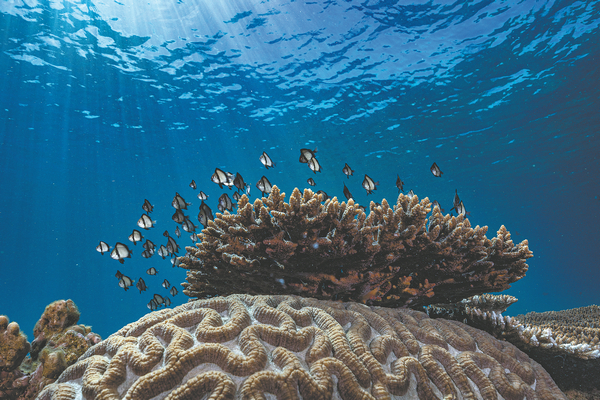

As Xu gained knowledge about coral, including how to regulate factors like water temperature, pH levels and trace element concentrations during the cultivation process, his coral gradually started to flourish. As he delved deeper into the creature, he learned that coral reefs are known as "tropical rainforests" and "underwater gardens "of the ocean, providing a home for a quarter of all marine life.
Unfortunately, with the strengthening of the greenhouse effect, rising sea temperatures have led to coral bleaching and decay. A coral reef's beautiful colors come from the symbiotic algae zooxanthellae that provide more than 90 percent of the energy through photosynthesis. Coral bleaching occurs when coral expels the algae and dies due to the lack of nutrients.
"The clusters of dead coral covered with algae look just like a forest after a big fire, and all is ruin," he says.
Xu felt an increasing sense of urgency and responsibility to protect them. After graduation, he seized the opportunity to become a coral conservationist and officially joined the CAS research team in Hainan.
In the laboratory, he would film educational videos of the artificial coral breeding system to explain the relationship between coral polyps and reefs. His goal was to raise awareness and knowledge about corals, so that people can learn how to protect them effectively.
"Understanding the species is the first step toward effective conservation," he says.
He also learned diving and underwater photography to get a closer look at corals for research purposes.